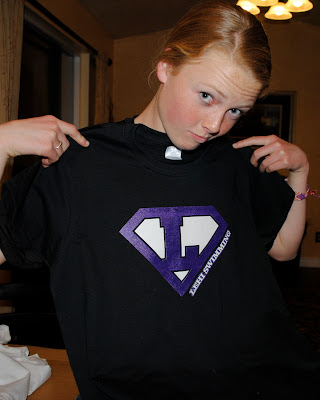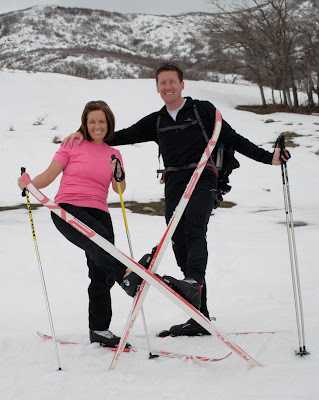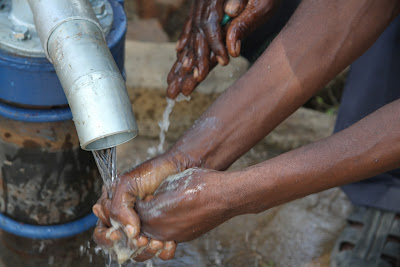Here is Matt's journal entry from his latest trip. He didn't have access to the internet most of the time so we were happy with this one entry! Of course, it was a wonderful experience!
Zimbabwe and Johannesburg Journal
As soon as I arrived in Zimbabwe and got off the plane I knew I was back in
Africa. The smell of wood fires seems to be a trademark of any African city and
is an instant reminder that so many people still live without the conveniences of
modern living. Those conveniences are blessings because they allow us more time
to devote to things of our choosing. What we do with that gift of time is our
burden to carry.
Harare, the capital of Zimbabwe is more modern than most other African capital
cities despite the decline they have experienced over the last decade. The
landscape is beautiful and filled with a large variation of trees and large
boulder fields scattered here and there. Flowers bring an assortment of colors to
the green landscape and I'm very impressed with the pride they take in their
surroundings. I saw some very poor farmers living in thatched roofed houses that
had a beautiful yard and garden.
We went into the rural area today and observed 3-hygiene training classes being
put on by our facilitators. I thought back about the quiet whispering of the Holy
Ghost to develop this aspect of the water initiative and what I saw reinforced
that it was divine. The feeling of the project was totally different than others
I've visited in the past. When I talked to villagers they would first tell me
something about hygiene training and then as the second topic they would talk
about the water well. The community members mentioned how much they loved the
training since the approach allowed for participation, which is different than
many other non-profits that merely lecture. I don't know if it is true but they
said it is the first training of its kind in Zimbabwe. One chief said, "Thank you
for doing this the right way. The hygiene training is making such a difference
and our people are enjoying meeting together. Thank you for the boreholes. Water
is life and our people have suffered".
In all our projects we work through local government and also tribal leadership.
Once we receive their blessing we start the project. We went to a meeting at the
"Headman's" house (yes, that's his actual title) where about 35-village chiefs
where counseling together about various issues. We learned how to clap our hands
together to show honor to the Headman and we each gave a little speech expressing
our love, excitement, and belief for them and their communities. Toward the end
they started debating about what to do with the old pipes and pumps our crews
pulled out of a handful of old wells we are refurbishing. One side was saying
they should hold onto the old equipment and use it down the road for repairs.
Another side was saying they would not feel right having a functioning pump
sitting for years in a storage shed while their brothers in the neighboring
village went without clean water. I could see both sides of the argument but I
believe it's always better to error on the side of charity. As the debate became
locked I felt something inside that I needed to stand and say something. I had no
idea what I would say but trusted words would come. I clapped my hands in the
ceremonial way to the Headman and he gave me the floor. As I opened my mouth the
thoughts came and what funny but effective thoughts they were. I made an analogy
that Elder and Sister Bean the senior missionary couple were like old pipes.
Their family in America could have said, "No, don't go to Africa, we need you
here with us", but instead they said, "Let's share our old pipes and bless
others". They all knew the blessings Elder and Sister Bean had brought to them,
so many, if not all the chief's heads were nodding up and down in understanding
and agreement.
After the meeting we talked about the effectiveness of our visit and Elder Bean
with his great sense of humor gave me a hard time about being compared to an old
pipe. From there on out he would tell anyone we met about the analogy and how
they are old pipes, which always brought laughter.
The following day we traveled to Muzurabani, a city about 3-hours away. As we
drove through the countryside I was amazed at the beauty of Zimbabwe, especially
during the rainy season when the color green was king of the land. When we
arrived a group of adults were had been waiting all day to welcome us. They
started singing a hymn in their local language that says, "God is in this". It
was surreal to hear them sing and dance for us knowing the song they picked to
sing was acknowledging the hands of God in bringing us together. Each of the 40-
50 people wanted to shake our hands and tell us thank you.
The people of Muzurabani had the hardest time getting water out of any other community we saw in
Zimbabwe. The valley they live in is lower in elevation so it gets much drier than the farm lands and
wilderness we just passed through. They are so far north that they border Mozambique. They walk
around 2-miles to get their water and in the dry season they have to dig holes in the river bed, wait for it
to fill up with water, then scoop it out one cup at a time. We paid for the contractor to drill the
borehole, install the pump, and pour the cement, but the community’s part was to provide the sand,
gravel, and brick for the latrines. They also built the fence around their water pump. It’s fun to see the
community moral during our projects. Everyone is happy and smiling, partly because they know their
lives are going to be so much better with clean water and better hygiene, but it’s also because they are
working and contributing to the effort.
On Sunday we attended the Queensdale Ward, a small ward in the Harare Stake. They meet in a
makeshift chapel and hold general priesthood under the mango tree outside. I sat next to a man who
was getting baptized right after church and we listed to the lesson from the bishop. All the sudden a
drop of mango juice dropped right down on his pants and we laughed. A mango right above him was
infested with fruit flies and was decomposing on the tree. At other times in the lesson a mango would
drop here and there without any disruption to the lesson. Somehow nobody got hit with a falling mango
through the entire priesthood lesson. The Bishop was younger and was doing his best. You could tell he
is a good man, but he needed a lesson on creating a “safe classroom”. He would ask those who didn’t
pray before they left the house this past week to raise their hands and tell everyone why. He also asked
who didn’t pay their fast offerings last month and why. The interesting part of the lesson was when he
talked about the need for them to be charitable. He asked who had ever gone to bed hungry without
any idea of where they were going to get their next meal. About half of their hands went up. I hoped he
wouldn’t ask me if I had because I felt so uncomfortable realizing I have never gone to bed at night
hungry wondering where I would find my next meal.
To add to my guilt of never feeling hungry we had lunch with Reg Nield and his family. President
Monson talked about their family in the Ensign not too long ago because he sealed them in the Salt Lake
Temple after they had worked so hard to get there from Zimbabwe. They are wonderful people with
giant hearts. They are descendants of the Dutch settlers and have been in Zimbabwe for generations.
Brother Nield was on the national rugby team and was also the team captain for a number of years. He
is fairly famous in the country because of his rugby background and their chartable work. The whole
family came over for lunch and we talked as if old friends. It was interesting to sit around their dining
table and listen to their conversations. One story that stands out is something that happened a couple of
years ago. When they were suffering from hyper-inflation in 2008 and no food was available in any
stores, the police were going to wealthy home owners and raiding their kitchens. They came up with a
law that if you had any storage it was hording and illegal. People were killed in a few situations so the
Nields decided they needed to get rid of all their wheat they had in food storage. Late at night her
daughters spread wheat around their large yard in an effort to get rid of the wheat without people
knowing they had it in the first place.
Coming to South Africa was an interesting experience to see just how modern Johannesburg is
compared to the rest of Africa. One of our missionaries has been very sick but was able to make it into
our training. Elder Ridges, serving in Madagascar spent last week in the hospital and they have been
worried that whatever is causing him severe stomach problems will cause them to go home early. At the
end of our meetings today the men gathered together in a giant circle and gave him a priesthood
blessing. He asked me to provide the blessing. There was a sweet feeling in the room and I felt that the
doctors would be able to provide the right diagnosis and he would find the right help and continue his
mission. Toward the end of the blessing I felt another thing that increased the spirit in the room so much
so that others commented on feeling it as well. I felt like the prayers of their family members at home
had been heard by the Lord and because of their faith this blessing has been granted.

Water and Hygiene training...
This trip was a little different... Matt had a little time to play!































































